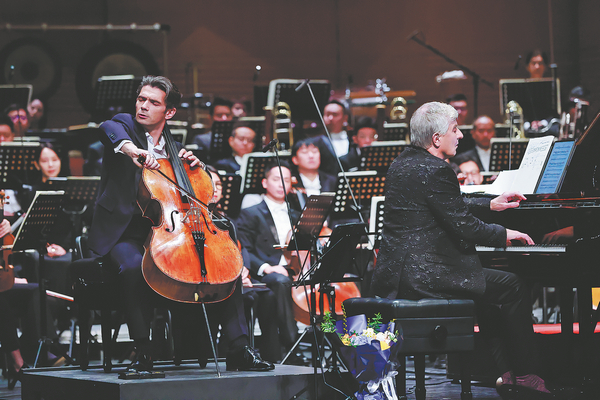

Trained in Beijing's Central Conservatory of Music and moving to the United States in 1985 under a fellowship to attend Columbia University in New York and receiving a Doctor of Musical Arts degree in 1993, the composer is deeply grounded in the spectrum of his Chinese heritage and is a pioneer in transferring the sounds and techniques of ancient Chinese musical traditions to modern Western instruments and ensembles.
Jiu Ge is a series of ritualistic songs intended for religious ceremonies and sacrifices. The poems in Jiu Ge are notable for invocating deities, nature spirits and mythical figures, blending religious devotion with human emotions. They reflect a combination of spiritual reverence, human longing and natural imagery typical of Qu Yuan's style, particularly his deep concern for the fate of his country and his exile.
In 2013, the music piece Nine Odes, written for a symphony orchestra and solo singers, premiered during the 16th Beijing Music Festival by the Guangzhou Symphony Orchestra under the baton of Lin Daye and singers including soprano Huang Ying and tenor Warren Mok.
Last year, Zhou readapted the music piece and turned it into a symphonic poem of the same title, debuting it in Guangzhou. On Tuesday, during the recent 27th Beijing Music Festival, it premiered in Beijing, performed by the Guangzhou Symphony Orchestra under the baton of Huang Yi and accompanied by erhu player Lu Yiwen.
Also consisting of 11 chapters, the new version, without human voices, sees a conversation between Western symphonic music and the Chinese erhu (two-stringed fiddle).